detail profile mikheil chiaureli
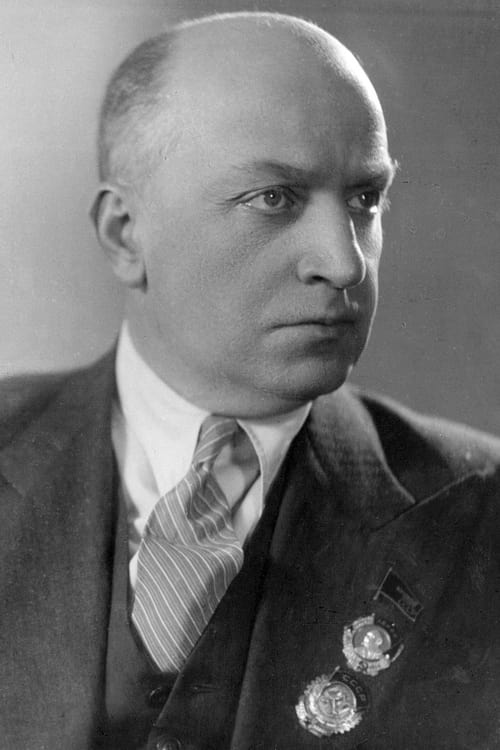
Mikheil Chiaureli
Mikhail Chiaureli
atau dikenal sebagai
Riwayat Hidup
Soviet, Georgian film actor, theater, film, animation director, animator, screenwriter, sculptor, teacher; People's Artist of the USSR (1948).
Winner of five Stalin Prizes (1941, 1943, 1946, 1947, 1950).
In 1909 he graduated from the Tiflis vocational school.
In 1912 he graduated from the Tiflis School of Painting and Sculpture (now the Tbilisi Academy of Arts), a student of Yakov Nikoladze.
Since 1915 he worked in the theaters of Tiflis, Kutaisi and Batumi as an actor, director and artist.
In 1917, under the guidance of the historian Ekvtime Takaishvili, together with the futurist poet Ilya Zdanevich, the artists Lado Gudiashvili and Dimitri Shevardnadze, he was on an expedition to the southern regions of Georgia (Turkey).
Archaeological activities were held in the churches of Ishkhan, Oshki and Khakhuli.
In 1921, he participated in the organization of the Theater of Revolutionary Satire at the Georgian branch of ROSTA.
From 1922 to 1924 he lived in Germany, where he worked in sculpture workshops, after which from 1924 to 1926 he worked as a sculptor in Tiflis (the author of the first sculpture of V.
Lenin in Georgia).
From 1926 to 1928 - actor and director of the "Workers' Theatre", "Red Theater" under Proletkult.
From 1926 to 1941, he was the director and artistic director of the Georgian Theater of Musical Comedy named after V.
Abashidze, organized by him in 1934 together with David Dzneladze on the basis of the mobile musical and drama theater "Kopteatr", which existed since 1926.
Since 1928, he was the director of the trust JSC Goskinoprom of Georgia (since 1938 - the Tbilisi Film Studio, now - Georgia-Film), since 1940 - the artistic director of this studio.
In 1946-1955 he was the director of the Mosfilm film studio, in 1955-1957 - the Sverdlovsk film studio.
He taught at the film acting school at the Tbilisi Film Studio, in 1950-1960 - a teacher at VGIK (Moscow) (since 1951 - professor).
Member of the CPSU (b) since 1940.
Deputy of the Supreme Soviet of the USSR 1-3 convocations (1937-1954).
He died on October 31, 1974 at the age of 81 in Tbilisi.
He was buried in the Pantheon of Georgian Cultural Figures on Mount Mtatsminda.
Info Pribadi
Peran Yang Di Mainkan Mikheil Chiaureli
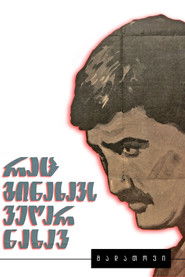 The young craftsman Gogia and the...
The young craftsman Gogia and the...You Can't See What You Have Seen 1965
The young craftsman Gogia and the village girl Tasia fall in love with each other. Arriving in Tasia's village accompanied by a wedding procession, Gogia Can't find his bride anymore, Turns out by the order of Tasia's godmother, the duke's wife, she was taken to the duke's house as a servant. The elderly duke liked Tasia and decided to marry her. Gogia with the help of his friends, Karachokheli, tries to get his bride back.
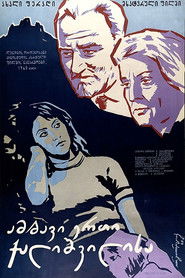 An Young inexperiences girl had decided...
An Young inexperiences girl had decided...Story of Young Girl 1960
An Young, inexperiences girl had decided to live in the countryside, but she can't find her place among gloomy, unfriendly locals, Can't manage to do her job well. and decides to return to the city. However, her family thinks that her return would be inappropriate for their traditions.
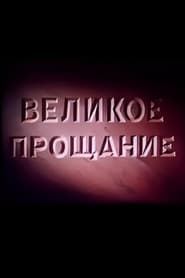 March 9th 1953 A gray sad day...
March 9th 1953 A gray sad day...Velikoye proshchaniye 1953
March 9th, 1953. A gray, sad day. Clouds float low over the Kremlin towers. A city that unrecognizably grew, prettier and matured - this Moscow froze in solemn grief. The country escorts its father and leader, Joseph Stalin.
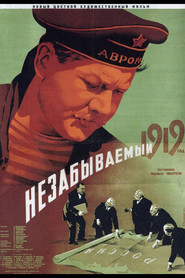 Soviet propaganda film in two episodes...
Soviet propaganda film in two episodes...The Unforgettable Year 1919 1951
Soviet propaganda film in two episodes about Stalin's strong and cruel suppression of the 1919 anti-communist uprising in St. Petersburg, Russia. Stalin and Lenin are shown as heroes who destroyed the efforts of anti-communists led by White Russians with support from "bad" British capitalists headed by Sir Winston Churchill and Lloyd George.
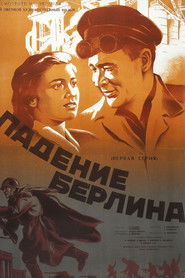 Surrounded by a few party officials...
Surrounded by a few party officials...The Fall of Berlin 1950
Surrounded by a few party officials, Alexei Ivanov, a stakhanovist smelter, is decorated by Stalin. The "Little Father of the Peoples" takes this opportunity to invoke threats of war.... One day, war indeed breaks out. Bombs fall on the field where Alexei finds himself in the company of the schoolmistress Natacha, his fiancée. Alexei joins the Red Army and soon becomes a sergeant. Fighting rages and German troops advance. Natacha is arrested and deported. But the tide turns decisively with the German defeat at Stalingrad. Now the major offensive against Hitler can begin.
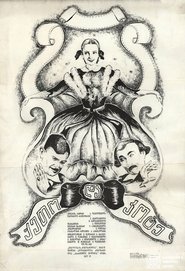 Using a marriage brokera Prince in...
Using a marriage brokera Prince in...Keto and Kote 1948
Using a marriage broker,a Prince in dire financial straits plans to marry the wealthy daughter of a merchant, The girl is in love with the nephew of the prince. Forced by her father into the unwelcome match, she finds a friend in another matchmaker. They arrange it so that the prince will not like the girl when he meets her.
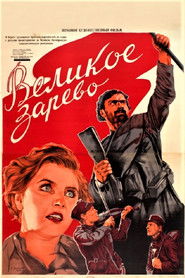 In 1917 the people of the Russian...
In 1917 the people of the Russian...The Great Dawn 1938
In 1917, the people of the Russian Empire are no longer willing to fight Germany, but the bourgeois government of Alexander Kerensky is unwilling to defy its imperialist allies and stop the war. Only Vladimir Lenin's Bolshevik Party is resolute in calling for peace. In the front, the soldiers of one battalion elect three delegates to travel to St. Petersburg with donations the troops collected for the Pravda newspaper: Gudushauri, Panasiuk and Ershov. The three arrive in the capital and describe the horrendous conditions in which the soldiers live to Joseph Stalin, Lenin's trusted aid and colleague. They join the Bolsheviks and take part in the storming of the Winter Palace, led by Stalin and Lenin. Stalin announces that the great dawn of revolution has broken.
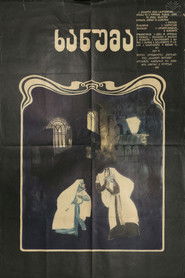 Prince bonvivant Levan Phantiashvili finds himself...
Prince bonvivant Levan Phantiashvili finds himself...Khanuma 1926
Prince bon-vivant Levan Phantiashvili finds himself in a difficult financial situation. To make his life better he agrees to marry the merchant Adam Varakhidze’s daughter, Elo. The merchant is happy for this move opens the door in a high society for him until he finds out that Elo is not quite happy with his decision.
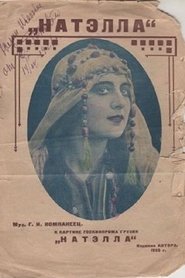 Love adventure and revolutionary uprising in 19...
Love adventure and revolutionary uprising in 19...Natela 1926
Love, adventure, and revolutionary uprising in 19th century Georgia.
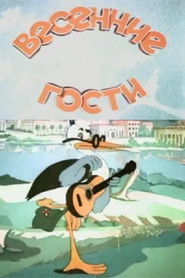 A short film about respecting and...
A short film about respecting and...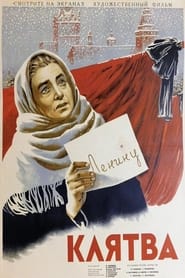 The story of Stalin and the...
The story of Stalin and the...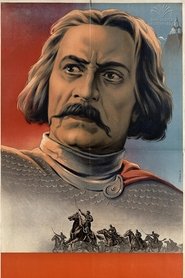 The film tells about the struggle...
The film tells about the struggle...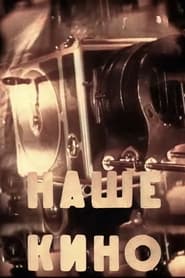
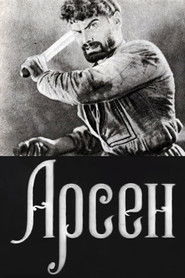 XIX century peasants revolt and the...
XIX century peasants revolt and the...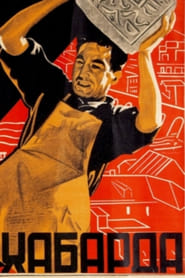 When the communists decide to renovate...
When the communists decide to renovate...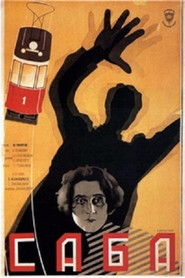 A rework of Boris Sigals play...
A rework of Boris Sigals play... 1918 year One of the southern cities...
1918 year One of the southern cities...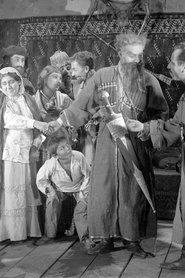
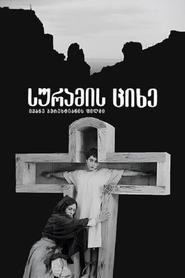 The legend of the Suram Fortress
The legend of the Suram Fortress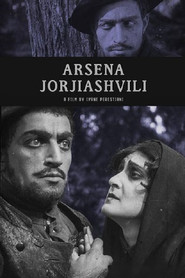 Revolutionary uprising of Georgian laborers in 1905
Revolutionary uprising of Georgian laborers in 1905